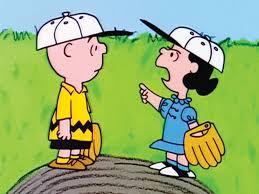
Sweating the Small Stuff
The sign on a college classroom door reads, “Philosophy 101.” A professor walks in and places a jar, about the size of an average cookie jar, on his desk.
He extracts from his brief case a box full of golf balls and apparently fills the jar with them. Then he asks his students, “Is the jar full?” They all answer, “Yes.” Then he takes a container of pebbles out of the brief case and adds them to the jar up to the brim. “Is it full now?” he asks. Again, the class says “yes.”
Then he takes a container of sand from his brief case and fills all the crevices between the golf balls and pebbles, also up to the brim. “How about now?” he asks. Their answer is a more emphatic, “yes.”
But he’s not finished. He pulls two bottles of beer out of the brief case and pours the contents of one of them into the jar, truly filling the jar.
The lesson? We all have only one life to live, he says, “a fleeting shadow of all that exists in this vast universe.” The jar represents your life. Golf balls are the important things in life – your family, your friends, your health and your passions. The pebbles are the other things you care about, your car, your job, your home. The sand is everything else, just the small stuff.
Take Care of the Golf Balls
“If you start by filling up the jar with sand,” he continues, “you won’t have room for anything else. The same in life. If you spend all your energy and time on the small stuff, you won’t have time for all that is really important to you. Pay attention to the things that are critical to your happiness. Take care of the golf balls first, the really important things. Set your priorities because everything else is just sand.”
This is all from a video that has been circulating on social media. Unlike much of what appears there, this advice is worth noting. And many Christians will notice the striking similarity to Jesus’ words in the gospel of Mathew.
“Therefore do not be anxious, saying, ‘What shall we eat?’ or ‘What shall we drink?’ or ‘What shall we wear?’ For the gentiles seek all these things; and your heavenly Father knows that you need them all. But seek first his kingdom and his righteousness, and all these things shall be yours as well.”
The professor’s advice, “Pay attention to the things that are critical to your happiness,” is essentially the same as that of Jesus. Though in terms unfamiliar to many secular contemporaries, seeking first the kingdom of God means establishing a relationship with God, and seeking “his righteousness” means striving to be Godlike. And that will make you happy.
Personally, I’m forever grateful to a friend in high school who one day was brave enough to say to me, “Carney, don’t sweat the small stuff.” I still care too much about the small stuff, but at least I’m painfully aware that I do. And I recognize that it’s an obstacle to my relationship to God and others.
I also see that true happiness derives from my relationship to God and others. I recognize that many others don’t see it that way and that many doubt that there’s any relationship between religious or spiritual practice and human happiness.
And I know that many who are searching for God, or for God by another name, neglect finding what they’re looking for because they miss the obvious.
The spiritual writer Henri Nouwen writes:
Hoping for Change
“Aren’t you, like me, hoping that some person, thing, or event will come along to give you that final feeling of inner well-being you desire? Don’t you often hope: ‘May(be) this book, idea, course, trip, job, country or relationship (will) fulfill my deepest desire?’
“But as long as you are waiting for that mysterious moment,” he adds, “you will go on running helter-skelter, always anxious and restless, always lustful and angry, never fully satisfied. You know that this is the compulsiveness that keeps us going and busy, but at the same time makes us wonder whether we are getting anywhere in the long run. This is the way to spiritual exhaustion and burn-out. This is the way to spiritual death.”
Spiritual life, and the happiness that we all seek, is found in pursuing the search for God with patience and acceptance of uncertainty.
By the way, one of the professor’s students asked what the beer represents.
“I’m glad you asked that,” he responded. “It shows that no matter how full your life seems to be, there’s always room for a couple of beers with a friend.”




